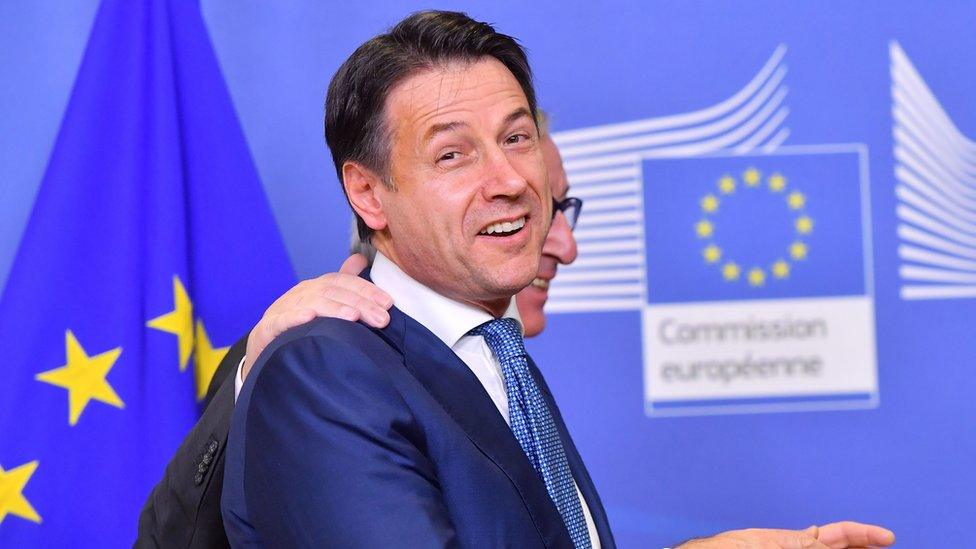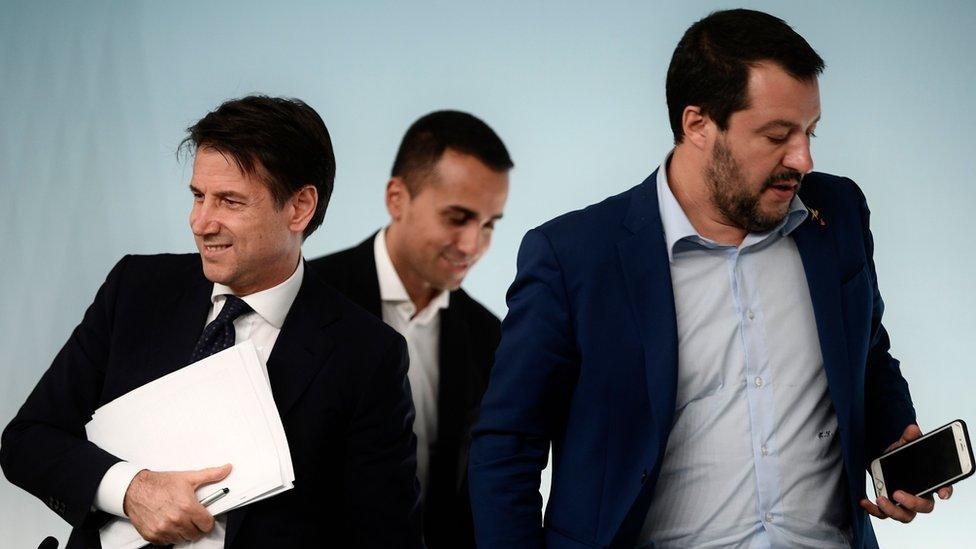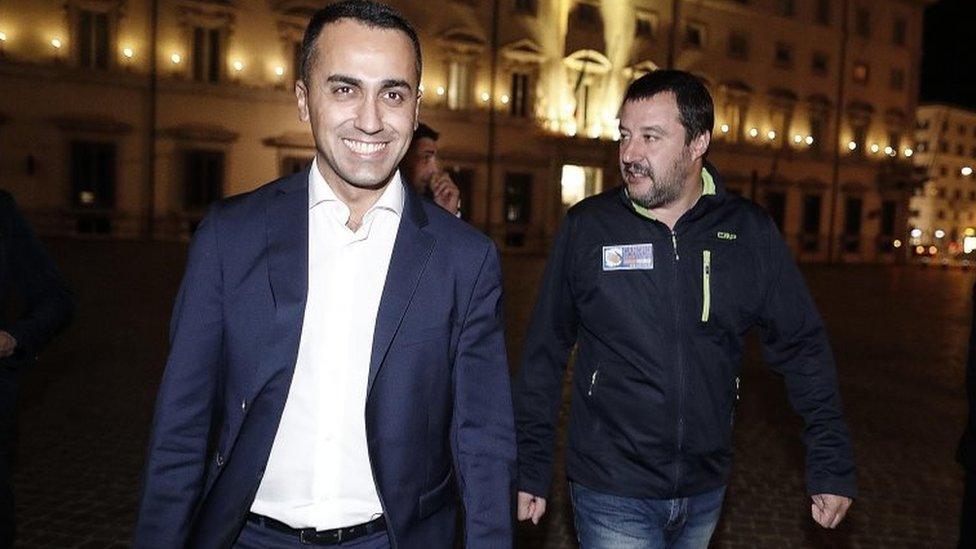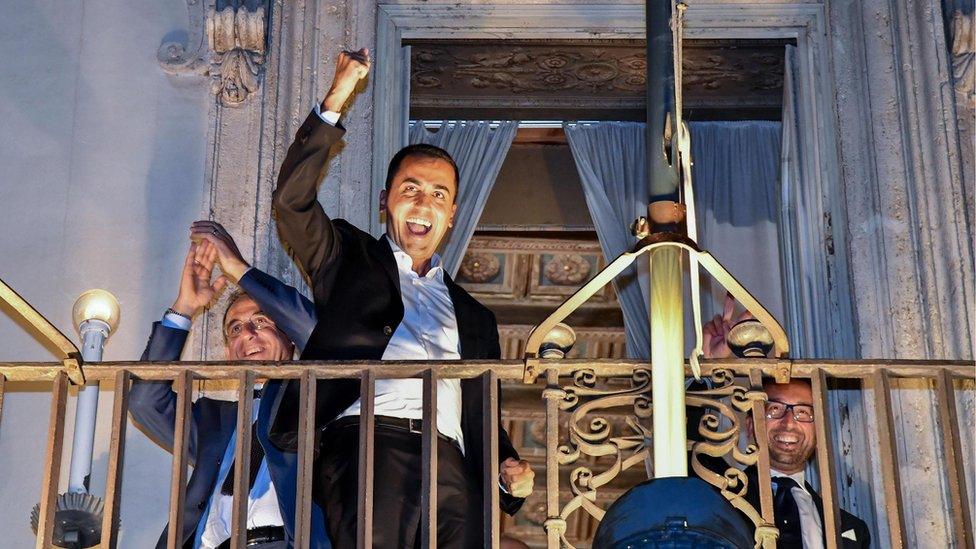Italy budget: Rome vows to stick to plans, despite EU concerns
- Published

Best of friends? Italian PM Giuseppe Conte discussed the budget standoff with the head of the European Commission
Italy's government says it will stick to its high-spending budget plans, setting up a potential stand-off with the European Union over its deficit.
PM Giuseppe Conte, who held talks with deputies Matteo Salvini and Luigi Di Maio on Monday, said the objectives for 2019 had already been fixed.
However, Mr Di Maio hinted earlier that the government might be willing to cut the deficit target a little.
The European Commission has threatened fines unless Italy revises its plans.
The Italian government has vowed to "end poverty", trebling the previous government's planned budget deficit.
Italian media were on Monday morning reporting that the deficit could be slashed from a planned 2.4% to 2.2% of GDP - but government sources quoted by Reuters suggested the deficit could be reduced to as low as 2%.
Deputy Prime Minister Luigi Di Maio suggested the government might be willing to reduce the deficit target to end the stand-off with the EU saying: "If, during the negotiating process, the deficit has to be reduced a bit, that's not a big deal."
But in a joint statement later on Monday, the three men appeared to take a tougher line, saying: "The objectives that have already been fixed are confirmed."
Italy's draft budget contains expensive measures for introducing a guaranteed basic monthly income of about €780 (£700) for poor families, and scrapping extensions to the retirement age.
Monday's statements followed a weekend meeting in Brussels between Mr Conte and European Commission President Jean-Claude Juncker.
It was not clear how any reduction in spending would be financed if key election promises made by the ruling populist League and Five Star parties remained untouched. Nor was it certain that the changes would be enough to satisfy the European Commission.
'Sleepwalking into instability'
The Commission announced last Wednesday that Italy was "sleepwalking into instability" and that opening a case under the eurozone's "excessive deficit procedure" was now on the cards, external.
Fines under that procedure could start at 0.2% of Italy's entire GDP - which would measure in the billions of euros.
The reason for Europe's concern is that while Italy is the third-largest economy in the eurozone, with a GDP of more than two trillion euro, it also has a large amount of debt.
Eurozone rules say that countries should both keep their deficit to less than 3% of GDP - which Italy's plans do - but also keep national debt to 60% of GDP or less.
Many countries exceed that debt limit without any action being taken. But at almost 132% of GDP, Italy has the second highest rate in the bloc.
When Brussels received Italy's draft budget, it said the country's refusal to deal with its debt and essentially triple the planned deficit was unacceptable.
Italy, meanwhile, maintained that investment was needed to kick-start the sluggish Italian economy and reduce the suffering of its citizens.
- Published23 October 2018

- Published14 November 2018

- Published28 September 2018
